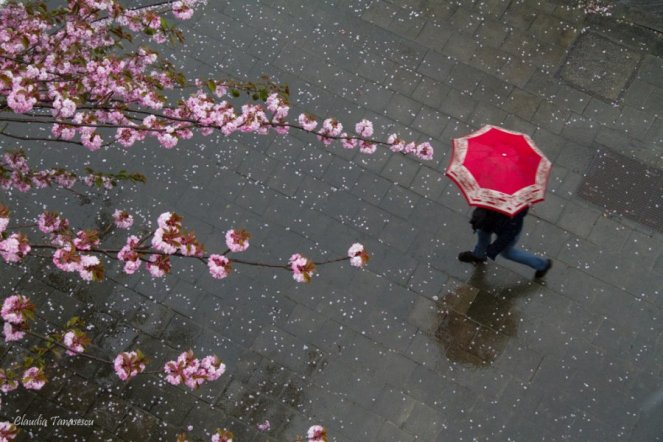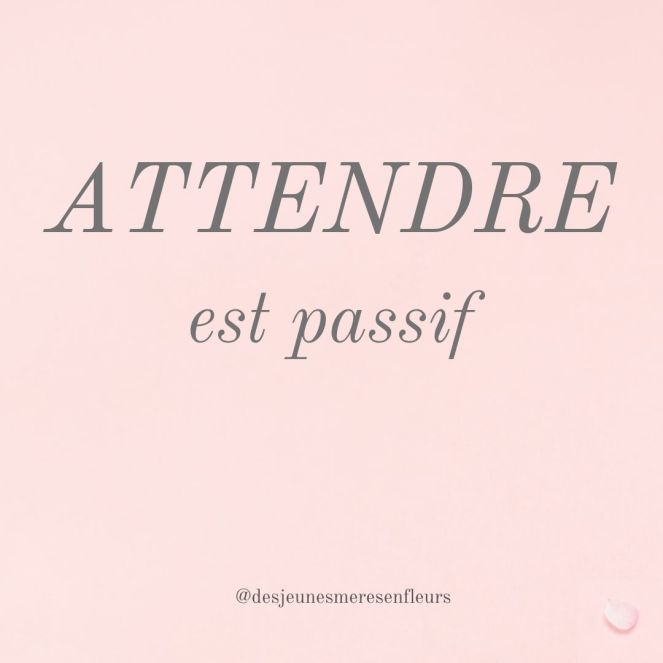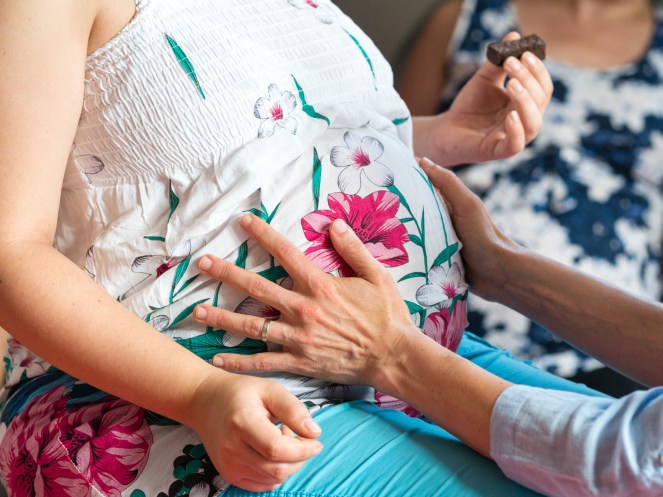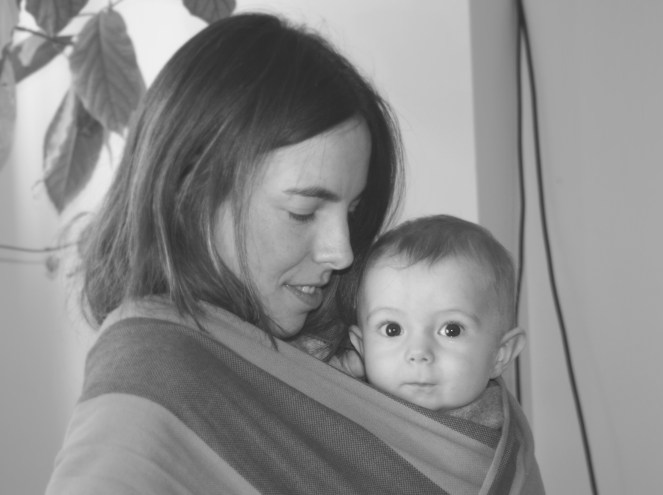
D’où vient la beauté d’une naissance? Comment une naissance doit-elle être vécue? J’ai écouté, il y a quelques semaines, un couple raconter l’histoire d’une naissance – la naissance de leur fille.
Cela faisait plus d’une semaine que quelque chose se passait. Une vague, ci et là, comme un début de rencontre; un mouvement dans le bas du ventre; des sensations dans le périnée. C’est l’heure? La maman s’est demandée. Elle a marché, elle a attendu encore un peu. C’est l’heure? A-t-elle demandé au père. Ils ont dansé. C’est l’heure, elle a demandé à la sage-femme. Vers le milieu de la semaine suivante, c’était l’heure. Les vagues ont commencé à venir, régulièrement, fiablement. Espacées de vingt minutes, de quinze. Elles se soulevaient, s’épanouissaient dans le ventre, et s’en allaient. Elles faisaient le travail du corps, le travail de la nature, mais quelque chose sonnait faux. Elles étaient trop peu fréquentes, trop lentes. Espacées de vingt minutes, de quinze. Mais elles étaient régulières. Elles sont venues pendant une nuit, puis le début de la journée suivante. Les parents ont fini par aller à la clinique. Le col s’ouvrait doucement, les vagues venaient doucement. La journée est passée. La maman était dans le bain, l’eau chaude la contenait comme un cocon. Les vagues étaient toujours trop espacées, la naissance toujours loin. La maman commençait à fatiguer. Elle est sortie du bain pour essayer d’accélérer le travail, mais elle y est retournée aussitôt. L’eau était bonne, elle l’entourait. Puis c’était le soir, et la fatigue a commencé à peser vraiment. Elle n’avait pas dormi la nuit d’avant, elle n’avait pas mangé. Les sages-femmes s’inquiétaient. Entre les vagues elle s’endormait maintenant, se réveillant quand son visage touchait l’eau, lorsque son corps, courbé par la fatigue, se penchait en avant. Minuit. A voix basse, les sages-femmes se sont concertées. Elles ont appelé le papa, lui disant qu’il fallait songer à aller à l’hôpital; ce travail durait trop longtemps. La maman, depuis le bain, sans entendre ce qui se disait, avait déjà compris. Elle savait ce qui était en train de se dire. Elle sentait l’appréhension des sages-femmes, l’hésitation. Elle a regardé son mari se lever et venir vers elle. Qu’allait-il lui dire? De quel côté était-il?
A son approche, elle s’est redressée. Elle voulait garder la foi en son corps. Tous les plans qu’ils avaient faits pour cette naissance; toute la préparation, les rêves. Elle était la gardienne de cet enfant.
Qu’allait-il dire?
Il s’est penché sur elle et a demandé: “que veux-tu faire?” Une question. Ce n’était pas une requête, pas un conseil, pas un reproche. Que veux tu faire. Une question claire. Et du fond de son être, par-dessus la fatigue, par-dessus la peur, par-dessus la préparation et tout ce qu’elle s’était imaginé à propos de cette naissance, quelque chose s’est soulevé en elle. Cela lui a pris un moment pour le voir. Tout était tellement neuf ce soir, le territoire mental inexploré, qu’elle se sentait étrangère dans sa propre tête. Elle a pris un moment pour réfléchir. S’ils montaient à l’étage, ce sera intervention. Déclenchement, peut-être extraction. Du personnel. Des instruments. De l’agitation. Une petite image de sa fille s’est soulevée dans sa tête, ou plutôt le sentiment, l’idée du bébé. Que voudrait sa fille? Que choisirait sa fille? La question tremblait juste en dessous de la surface de l’esprit, timide, à peine formulée. Elle savait qu’à présent, le bébé allait bien. Son coeur battait bien, son petit corps bougeait au rythme des vagues. Soudain, ce qu’il y avait à faire lui est apparu clairement, comme une évidence. “Je veux continuer”, a-t-elle dit, pendant que la vague suivante se levait et s’épanouissait dans son corps. Le bébé va bien. Je veux continuer.
Le reste de la nuit c’était l’aller-retour entre le bain et le dehors. Rester debout, accrochée aux suspensions, et puis se reposer sur le dos penché du papa, offert comme un don, entre les vagues. Compter, essayer de se reposer, mais en réalité, juste survivre. Il n’y a rien de glorieux dans ceci, elle pensait, je me sens tellement perdue, mais en se levant de nouveau pour s’accrocher aux suspensions et surfer la vague qui se répandait dans son corps, elle ne se voyait pas, elle ne pouvait pas se voir. Si elle s’était regardée de l’extérieur, elle aurait vu combien elle était belle, comme son courage était immense, pendant qu’elle guidait sa fille vers ce monde. Sa force était extraordinaire, sa détermination inspirante. Elle ne pouvait pas voir combien la scène était émouvante, elle qui puisait au tréfonds d’elle-même, combien elle était belle, et courageuse, luttant de tout son être pour emmener ce bébé au monde, se reposant sur le dos de son homme entre les vagues. Les sages-femmes, gardiennes de son bien-être et celui de l’enfant, veillaient à côté.
Rien de tout ce qu’elle avait fait auparavant ne l’avait préparée pour ça. Aucune chose ne lui avait demandé autant de force, de foi, d’endurance. La naissance est une chose du corps, c’est là qu’elle puise sa force, qu’elle révèle son mystère, qu’elle déploie sa force. Allait-elle redevenir elle-même un jour, telle qu’elle était avant? Cet homme plié devant elle, lui offrant son dos, s’était-il préparé pour ce qui leur arrivait?
*
Son bébé allait bien. Son coeur battait bien.
*
Puis c’était le matin. Tard dans la matinée. Cela faisait deux jours qu’elle était en travail. Elle avait lutté pendant longtemps. Et le bébé arrivait, sa tête était en train de naître avec le cordon autour de son cou. Et elle était petite. Même pas deux kilos et demi. Quand la sage-femme l’a vue, elle l’a attrapée pour l’emmener en haut, à l’hôpital. “Va avec elle!” la mère a crié, et le père a couru après la sage-femme les pieds nus, sa chemise oubliée à côté de la baignoire. Il a pris sa fille dans les bras et lui a parlé pendant qu’ils montaient, il lui a parlé pendant que la pédiatre l’examinait, il lui a parlé pendant qu’elle a été prononcée en bonne santé, hors de danger.
*
Ce n’est pas l’histoire que cette maman a imaginé pour son bébé. Ce n’est pas l’histoire qu’elle avait imaginé pour elle-même. Pas le travail-marathon, pas l’agitation folle de la fin. Pas de devoir attendre deux heures avant de pouvoir voir son bébé, étant trop fatiguée pour monter à l’étage. Quand les trois ont été réunis, le père avec le bébé, petit et rose dans ses bras, la mère qui venait d’arriver en fauteuil roulant, ils se sont touchés la main et ils ont pleuré.
Qu’est-ce que les gens se promettent quand ils s’aiment?
“Je voulais qu’elle aille au fond de ce qu’elle voulait faire,” le père a dit.
“Il a cru en moi, et moi j’ai cru en moi,” a dit la mère.
Les vraies histoires, je l’ai toujours pensé, sont les plus puissantes. “Le beau est vrai, le vrai beau.”* La force de ce récit est la force des personnes qui l’ont vécu. La détermination de cette mère qui voulait le meilleur pour son bébé; sa capacité à puiser dans ses ressources comme si elles étaient sans fond; la foi en elle-même, en son corps, qui lui a permis de continuer. La force aussi de la conviction du père que sa femme devrait avoir sa chance, la chance de vivre cette naissance comme elle le voulait; sa capacité à lui de trouver ses propres ressources pour l’assister; et le courage des sages-femmes qui ont épaulé la mère, tout en veillant à sa santé et celle du bébé. Alors j’ai dit aux parents, quand le récit était terminé: y’a-t-il quelque chose désormais que vous pensez ne pas pouvoir faire?
*Keats
What should birth be like? How should it unfold? I listened a few weeks ago, quietly, without interrupting, to a young couple tell the story of their daughter’s birth.
It had been over a week in coming. A wave, here and there, like a greeting; a movement in the lower belly; sensations in the perineum. Is it time? The mother asked herself. She walked, she waited. Is it time? She asked the dad. They danced. Is it time, she finally asked her midwife. Towards the middle of the following week, it was time. The waves started coming, steadily, reliably. Twenty minutes apart, fifteeen minutes apart. They rose, swelled in the belly, and left. They did the body’s work, nature’s work, but something was off in the timing. They came infrequently, too infrequently. Twenty minutes apart, fifteen minutes apart. But they were regular. They came for one night, then half a day. The parents eventually went to the clinic. The cervix dilated slowly, the waves came slowly. The day passed. The mom stayed in the bath, the warm water embracing her like a cocoon. Still the waves were far in-between, the birth still far away. The mother was getting tired. She stepped out of the bath, to try to speed up labor, but had to go back in. The water was good, enveloping. Evening came, and more fatigue. The mother had not slept the night before, she had not eaten. The midwives were worried. In-between the waves, she was falling asleep now, waking when her face touched the water in the bath, as her body slumped over. Midnight. The midwives whispered. They talked to the dad, suggesting perhaps it was time to go to the hospital, time to medicalize this birth. The mom, from the bath, did not need to hear what they were saying. She knew. She felt the midwives’ fear, she understood what they wanted. She watched her husband rise and come towards her. What would he say? Whose side was he on?
As he approached, she braced herself. She needed to keep her faith in her body. All the plans they had made for this birth; all the preparation, the dreams. She was the guardian of all that, and of the baby too.
What would he say?
He lowered himself towards her and asked: “what do you want to do?” A question. Not a demand, not a piece of advice, not a reproach. What do you want to do. A clear question. And from the bottom of her being, above the exhaustion, above the fear, above the preparation and everything that she had imagined about this birth, something raised itself in her. It took her a moment to recognize it. Everything was so new tonight, the mental territory so uncharted, that she felt like a foreigner in her own mind. She took a moment to think. If they went upstairs, it would be intervention. Induction, perhaps extraction. People. Instruments. Fuss. A little image of her daughter rose in her mind, not visually, only the feeling, the sense of the baby. What would her daughter want? The question hovered just below the surface of the mind, timid, unarticulated. She knew that at present, the baby was doing well. Her heart beat just fine, her small body rising and falling with the waves. Suddenly what there was to do emerged clearly, obviously. The mother sat up in the bath. “I want to keep going”, she whispered, as the following wave rose and swelled in her body. The baby’s doing well. I want to keep going.
The rest of the night it was in and out of the bath. Standing, holding on to the suspension ropes, and then resting on the father’s arched back, given to her like an offering, in-between waves. Counting, trying to rest, but really, just surviving. There’s nothing glorious in this, she thought, I feel so lost, but as she raised herself again to hold on to the ropes and surf the wave swelling in her body, she did not, could not see herself. Had she been watching from the outside, she would have seen how beautiful she was, how brave, guiding her daughter into this world. How immense her strength, how courageous her resolve. And how moving the picture of her lying on the father’s arched back, resting in-between the waves, with the midwives standing by, watching, safekeeping.
Nothing she had ever done in her life had prepared her for this. Nothing had required this much strength, this much faith, this much endurance. Birth happens in the body, it cleaves the seat of being, it rents asunder, it pierces. Would she ever be herself again? Would life ever seem the same? This man bent in two, his back a foundation for her to rest on, had he prepared for this?
*
Her baby was doing well. The heart beat well still.
*
And then it was morning. Late, late morning. She had been in labor for two days. She had pushed for several hours. And the baby was coming, her head was being born with the chord around her neck, and she was tiny. Not even two and a half kilos. When the midwife saw her, she grabbed her and rushed her to the floor above, the hospital floor. “Go with her!”, the mother shouted, and the father bolted barefoot after the midwife, leaving a trail of water from the pants he had been wearing in the bath. He took his baby in his arms and spoke to her while they went upstairs, spoke to her while the pediatrician examined her, spoke to her as she was pronounced fine and healthy.
*
This is not the story that this mother had imagined for her baby. It is not the story that she had imagined for herself. Not the endless labor, not the mad rush at the end. Not having to wait for a couple of hours before she saw her baby, being too exhausted to go upstairs. When the three reunited, the dad with the tiny, rosy baby in his arms, the mom having just arrived in a wheelchair, they touched hands and cried.
What was it that people promise when they love?
“I wanted her to get to the bottom of what she wished to do,” the dad said afterwards.
“He believed in me, and I believed in me,” is what the mom said afterwards.
True stories are the most powerful, I always think. “Beauty is truth, truth beauty”, who said that?*
The strength of this story is the strength of the people in it. How strongly this mother wanted the best for her baby! How long she endured, how deep within herself she reached! The strength also of the father’s belief that she should be able to live the birth of their child in her own way, and how he found his own ressources to assist her; and the strength of the midwives who stood by the mother, whatever their own concerns might have been. So I said to the parents – can you imagine, after this, anything you are not able to do?
* Keats said it.
Photo by Claudia Tanasescu: https://claudiatanasescu.com/




